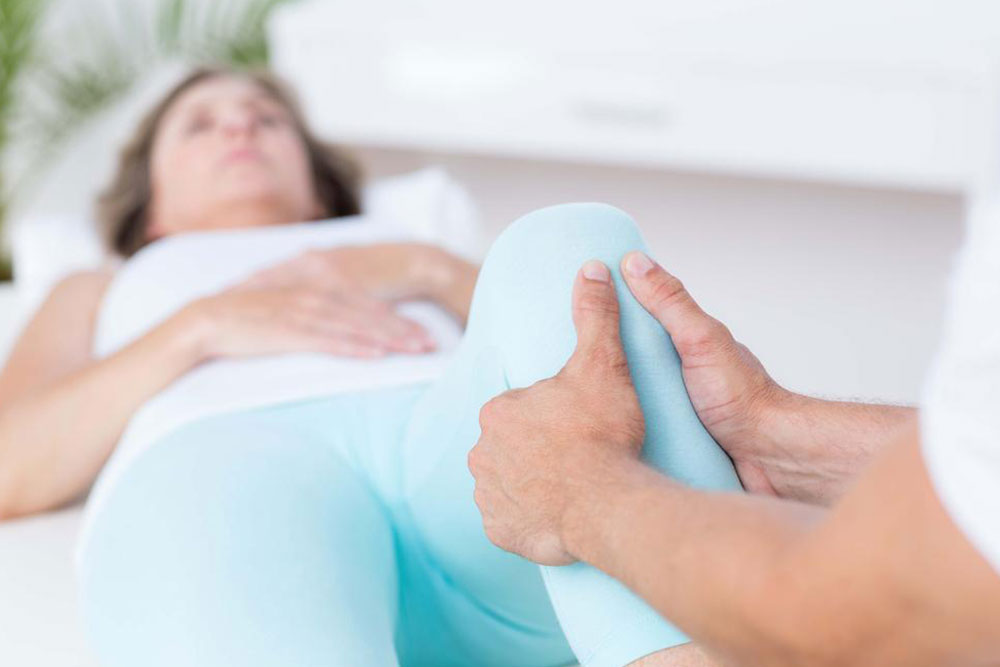Comprehensive Natural Strategies for Managing Restless Leg Syndrome and Enhancing Sleep Quality
Discover comprehensive natural strategies to effectively manage restless leg syndrome. This guide provides practical home remedies, lifestyle tips, and nutritional advice to alleviate symptoms, improve sleep quality, and enhance overall well-being. Perfect for those seeking safe and effective non-pharmaceutical approaches, it emphasizes holistic treatment and lifestyle modifications for lasting relief.

Effective Natural Approaches to Alleviate Restless Leg Syndrome
Experiencing persistent discomfort and sleep disturbances due to restless leg syndrome (RLS) can be overwhelming, but incorporating natural remedies into your daily routine can offer significant relief. These home-based strategies not only help alleviate symptoms but also promote better sleep, improve overall comfort, and contribute to a healthier lifestyle. If you're searching for effective, non-pharmaceutical ways to manage RLS, reading this comprehensive guide will provide you with actionable natural approaches supported by health and wellness experts.
Restless leg syndrome, often called Willis-Ekbom disease, is a neurological disorder characterized by an uncontrollable urge to move the legs. This sensation, often described as deep discomfort, creeping feelings, or itching, intensifies during periods of rest or inactivity, especially at bedtime, making it difficult for individuals to fall asleep or stay asleep. Although primarily affecting the legs, some individuals may also experience symptoms in the arms. The severity of RLS can fluctuate over time, with episodes varying from mild to debilitating, and in some cases, it becomes a chronic condition that requires ongoing management.
This article explores natural, home-based strategies proven to reduce RLS symptoms, improve sleep quality, and promote overall well-being. These methods can be used alone or alongside medical treatments, offering a holistic approach to managing this complex disorder. Recognizing the underlying causes, such as nutritional deficiencies or medical conditions, and combining targeted lifestyle modifications can significantly improve quality of life for RLS sufferers.
The first step in managing RLS naturally involves understanding its potential causes. While many cases are idiopathic, meaning no clear cause can be identified, secondary RLS is linked to underlying health issues like iron deficiency, kidney disease, pregnancy, or certain medications. Addressing these root causes is essential for effective symptom control. For primary RLS, which has no identifiable trigger, lifestyle adjustments and natural remedies can be especially beneficial. They serve as safe, low-risk options that complement medical advice and help reduce symptom severity over time.
Recognizing Restless Leg Syndrome Symptoms The hallmark of RLS is an irresistible need to move the legs, often accompanied by sensations of deep itching, crawling, or discomfort. These feelings tend to worsen when at rest and often intensify during evening or nighttime hours. Movement temporarily alleviates symptoms, but they tend to return once activity ceases. Many individuals report difficulty falling asleep or waking frequently during the night, leading to fatigue, irritability, and impaired daily functioning.
Common Causes and Risk Factors While in many cases, no specific cause is identified, certain factors have been linked to the development of RLS. These include nutritional deficiencies, particularly iron and folate shortages, chronic kidney disease, pregnancy, and medication side effects. Genetic predisposition also plays a role, with some families experiencing higher rates of RLS. The severity and frequency of symptoms can vary greatly among individuals, necessitating personalized management approaches.
Natural Remedies to Manage Restless Leg Syndrome Effectively A tailored approach combining nutritional, lifestyle, and behavioral modifications can help mitigate symptoms and improve sleep quality. Here are some evidence-backed natural strategies:
Applying Warm or Cold Compresses Using heat or cold packs on your legs before bedtime can soothe tense muscles, reduce discomfort, and promote relaxation. Experimenting with both options helps determine what works best for you – warm packs can relax muscles, while cold compresses can numb painful sensations.
Gentle Leg Massages Regular gentle massage of calves, thighs, and feet relaxes muscle tension, improves circulation, and alleviates cramping. Massages are most effective when performed by a partner, but self-massage using circular motions with your hands or massage tools can also provide relief. Incorporating essential oils like lavender or arnica can enhance relaxation effects.
Dietary Modifications and Nutritional Support Ensuring a balanced diet rich in iron, folate, magnesium, and vitamins B6 and B12 is crucial for preventing deficiencies linked to RLS. Incorporate foods such as leafy greens, lean meats, nuts, seeds, legumes, and whole grains. In some cases, supplemented forms of these nutrients, under medical supervision, may offer additional benefits.
Establishing a Consistent Sleep Routine Creating a relaxing pre-sleep ritual and sticking to a regular sleep schedule helps synchronize your body's internal clock. Maintain a comfortable sleeping environment by minimizing noise, light, and electronic devices. Engaging in calming activities such as reading, gentle stretching, or listening to soothing music can facilitate falling asleep.
Regular Moderate Exercise Daily physical activity, like walking, swimming, or yoga, helps reduce muscle tension, improve circulation, and alleviate anxiety. However, avoid rigorous workouts close to bedtime, as they may exacerbate symptoms or disrupt sleep.
Lifestyle Adjustments and Stress Management Quitting smoking, reducing alcohol intake, limiting caffeine, and practicing stress-relief techniques like meditation, deep breathing, or mindfulness can dramatically reduce symptom severity and improve overall sleep quality.
Supplements and Nutritional Support In cases of nutritional deficiencies, supplementation with iron, magnesium, or B vitamins may be recommended. Always consult a healthcare professional before starting supplements, especially to determine appropriate dosage and avoid overdose. Blood tests can identify deficiencies requiring targeted treatment.
Stress Reduction and Relaxation Techniques Incorporate mindfulness meditation, progressive muscle relaxation, or yoga to ease anxiety and restlessness. These practices help calm the nervous system, making it easier to fall asleep and stay asleep.
Reviewing Medication Interactions Certain medications can worsen RLS symptoms. Talk to your healthcare provider about any prescription drugs you're taking to evaluate potential side effects or alternatives that might be less aggravating.
Home Remedies for Symptom Relief Some natural remedies popular among RLS sufferers include tonic water containing quinine (used cautiously due to potential side effects), poppy seed tea, or vibrating pads that stimulate nerve endings and provide relief from sensations of restlessness.
Implementing these natural strategies consistently offers a safe, effective way to reduce RLS symptoms, improve sleep, and enhance daily functioning. While results may take time, persistence and holistic management can lead to a marked improvement in quality of life.
Living Well with Restless Leg Syndrome Adapting your lifestyle to incorporate these natural remedies can help you gain better control over RLS symptoms. Combining nutritional awareness, physical activity, relaxation techniques, and good sleep hygiene creates a comprehensive plan that promotes long-term comfort and health. Remember that consulting healthcare professionals for personalized advice, especially if symptoms worsen or new health issues arise, is crucial for optimal management.





